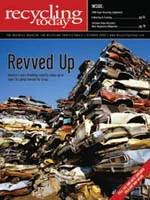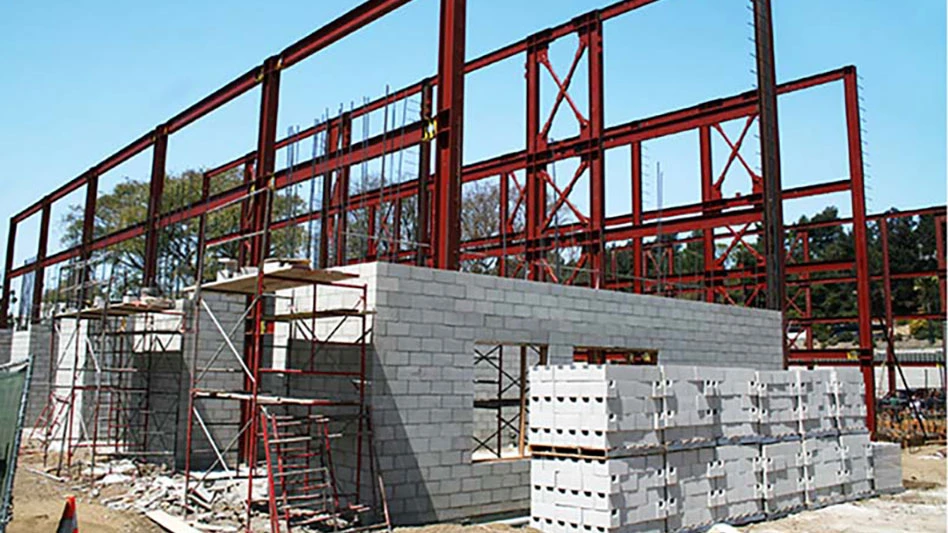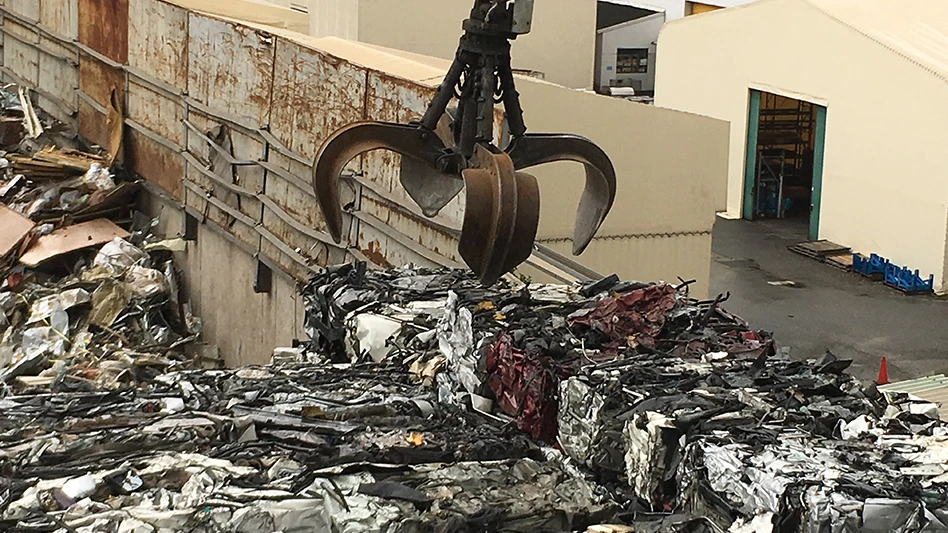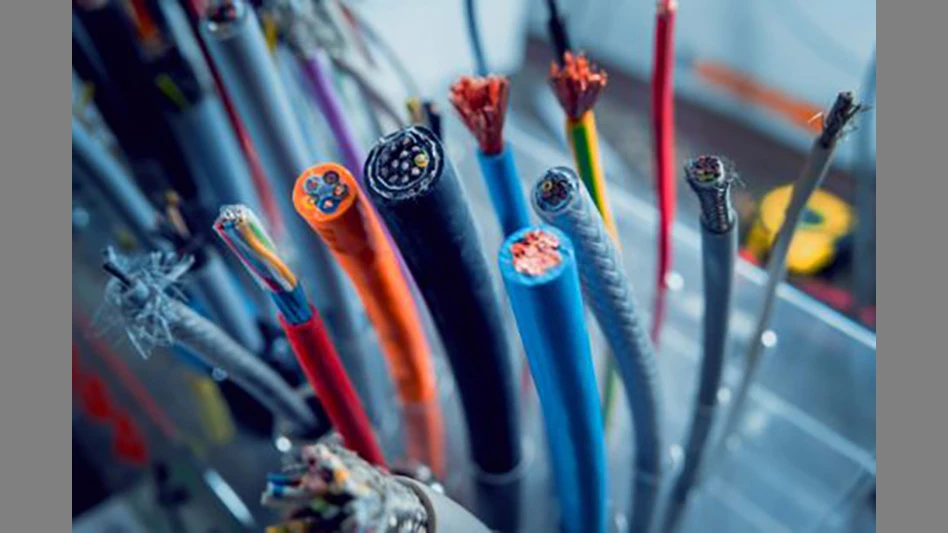Plastics recycling involves a set of collection and processing steps that can be so wide ranging and diverse that the term itself can be difficult to define.
In compiling this list—the first attempt by Recycling Today to identify North America’s 20 largest plastics recyclers—some of the most difficult work came in considering and settling upon qualifications and parameters for list eligibility.
One of the decisions made was to exclude the baling of post-consumer plastic bottles as a volume consideration for this list. This form of recycling is considered separately when Recycling Today compiles and publishes its list of the 20 largest MRFs (materials recovery facilities) in North America.
A further distinction between post-consumer and post-industrial material was considered but rejected. The recycling of plastics from obsolete vehicles (such as TPO auto bumpers) or obsolete electronics (such as ABS or HIPS monitor housings) are technically post-consumer, but these are not typically handled by MRFs and the types of companies that operate MRFs.
Considering whether to make a distinction between processing steps became the next challenge, and it is not necessarily one that can be easily addressed.
As in all other lists of recyclers researched and compiled by Recycling Today’s staff, companies involved at different stages of the recycling process have the understandable desire to ensure that their activity is defined as recycling.
While paper and metals recyclers can be somewhat more easily divided between processors (recyclers) and consumers, these labels and these distinctions are not necessarily as easily made in segments such as tire recycling, electronics recycling or plastics recycling.
The stages through which plastic scrap is collected and then prepared as a re-usable flake, pellet or resin can occur in several locations or could take place on site. Ownership of the scrap may pass between parties, or it may belong to one owner throughout the steps of a tolling process. A material may be exported thousands of miles away, or it may stay in a factory in a closed-loop arrangement.
In these differing setups, companies involved can all consider themselves recyclers and there is a risk that the same material could be counted twice by two different companies wishing to make this list of the 20 largest plastics recyclers in North America.
Even more likely when a list like this is put together, however, is that significant recycling activity has been missed in a first attempt to compile a list.
Readers who work for a company or know of a company that should have made this list or was a strong candidate are urged to contact either Brian Taylor at btaylor@gie.net or DeAnne Toto at dtoto@gie.net.
MUCH TO DO
The companies that have made the inaugural list have all achieved considerable scale, and most also engage in a wide variety of activities.
A visitor to the Nicos Polymers plant in Nazareth, Pa., is best served by wearing a comfortable pair of walking shoes.
Nicos Polymers’ more than 20 grinders and shredders are located within a 180,000-square-foot complex that takes in a wide variety of plastic scrap generated by segments across the heavy and light industrial and commercial spectrums.
Company founder James Knicos started the company from his Long Island garage concentrating on industrially generated plastics. Materials that flow into the facility today include plastic pipes, siding, fencing and window scrap; trimmings from plastic bottle-making facilities; scrap and purgings from injection molding plants; plastic films and wraps; and multi-material scrap created at garden hose factories.
In the past two years, the company has merged within it the operations of another East Coast plastics recycling firm, David Garfinkel’s Debco Plastics, and has been acquired by investment firm Crownbrook Capital. (See "Compound Interest," Recycling Today, Dec. 2007.)
Several of the other companies on this list work to a similar scale or work with a wide variety of customers much the way that Nicos Polymers does.
In northern Illinois, Maine Plastics Inc. has been focusing on the industrial plastic scrap stream since the early 1980s. The offshoot of a scrap metal recycling firm has enjoyed steady growth in the past 25 years as it has established itself as a leading Midwest buyer, processor and seller of plastic scrap.
The company, profiled in the August 2001 edition of Recycling Today in a story titled "The Future is Now," takes in plastic scrap from throughout North America. "We buy from all over the country, including Puerto Rico, and we sell all over the world," Maine Plastics Executive Vice President David Kaplan told Recycling Today. "We buy truckloads from overseas: Korea, Canada, the U.K., Mexico. In-plant programs can be set up anywhere. We have one supplier with more than 10 plants in different parts of North America."
At the time of its profile story, Maine Plastics operated from a 160,000-square-foot building in North Chicago, Ill. Subsequently, the company has moved to an even larger 222,000-square-foot building in nearby Zion, Ill., and also operates a second facility in Michigan.
Like Nicos Polymers, Maine Plastics handles a wide variety of materials, ranging from auto component factory scrap to excess plastic promotional items never used by restaurant and retail chains. The company’s Web site (www.maineplastics.com) lists a dozen forms of plastic scrap that it purchases (such as rolls or film) as well as states that it will accept many types of electronic scrap for further processing.
The success and growth of the two companies serve to demonstrate the opportunities that have been available in the plastic scrap recycling sector in the previous two decades.
DEMANDING TIMES
In addition to opportunities, North America’s plastic recyclers face the challenge of a slumping manufacturing sector in segments such as automobiles, appliances and building products.
On balance, though, the closing years of this decade may present more opportunities for plastics recyclers.
In a presentation given at Recycling Today’s Plastics Recycling Conference in June of this year, Scott Melton of recycling company ACI Plastics, Flint, Mich., outlined the evolution of the post-industrial automotive components recycling sector in the following steps:
• 1980s – Black plastic: Can you take it please?
• 1990s – Black plastic: Can you pay me something for it?
• 2000-2005 – Black, co-polymer PP: I re-use most of it (don’t tell my OE) and sell the rest.
• 2006 and Going Forward – Black, co-polymer 12 melt PP, meets Ford spec WSBM4D-A2, with a scrap market value of $.285/pound in grind form.
The two-decade path of progress is indicative of the greater opportunities available within the plastics recycling sector compared to as recently as the mid- or late 1990s.
As this sector grows and evolves, it will be the intention of Recycling Today to periodically present a list of the largest recycling companies within this industry segment.
So that our publication can provide a list that accurately reflects this developing segment of the recycling industry, please be sure to send any comments or feedback about this list to our attention. In turn, Recycling Today will pass along the updated and additional information to its readers.
The authors are editor in chief and managing editor of Recycling Today and can be contacted at btaylor@gie.net and dtoto@gie.net.

Explore the October 2008 Issue
Check out more from this issue and find your next story to read.
Latest from Recycling Today
- Circular Services breaks ground on north Texas MRF
- Tariff uncertainty results in choppy nonferrous scrap flows
- CATL, Ellen MacArthur Foundation establish battery partnership
- Greif announces price hike for all grades of URB products
- Ascend Elements appoints new president, CEO
- Culligan International to provide aluminum water bottles at Chicago running events
- Returpack reports increased DRS activity in Sweden
- Trade groups align against European export restrictions






